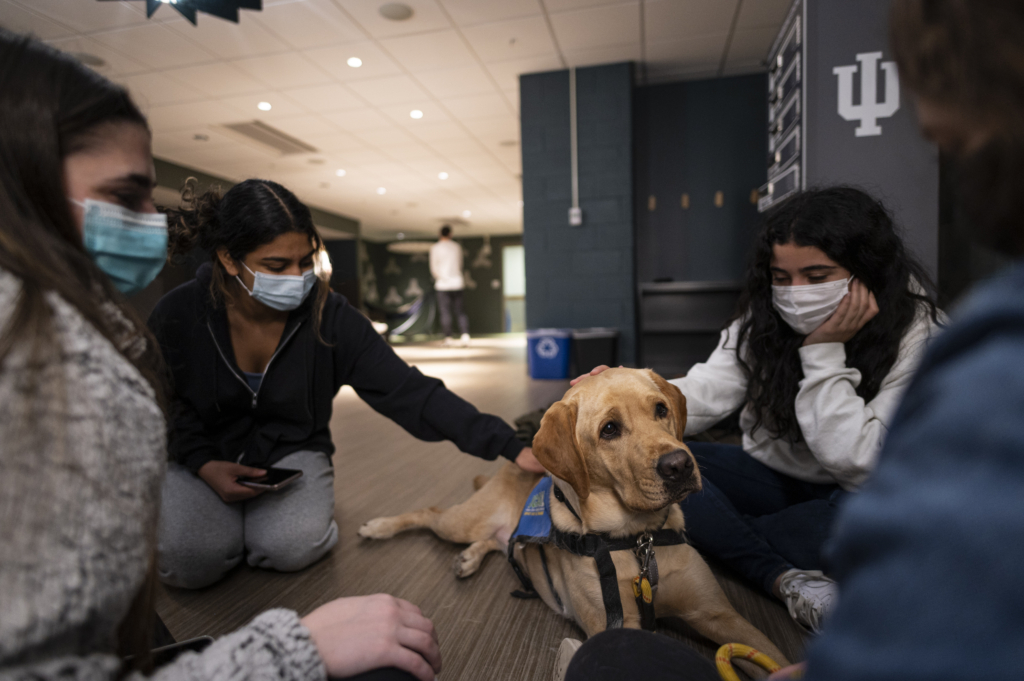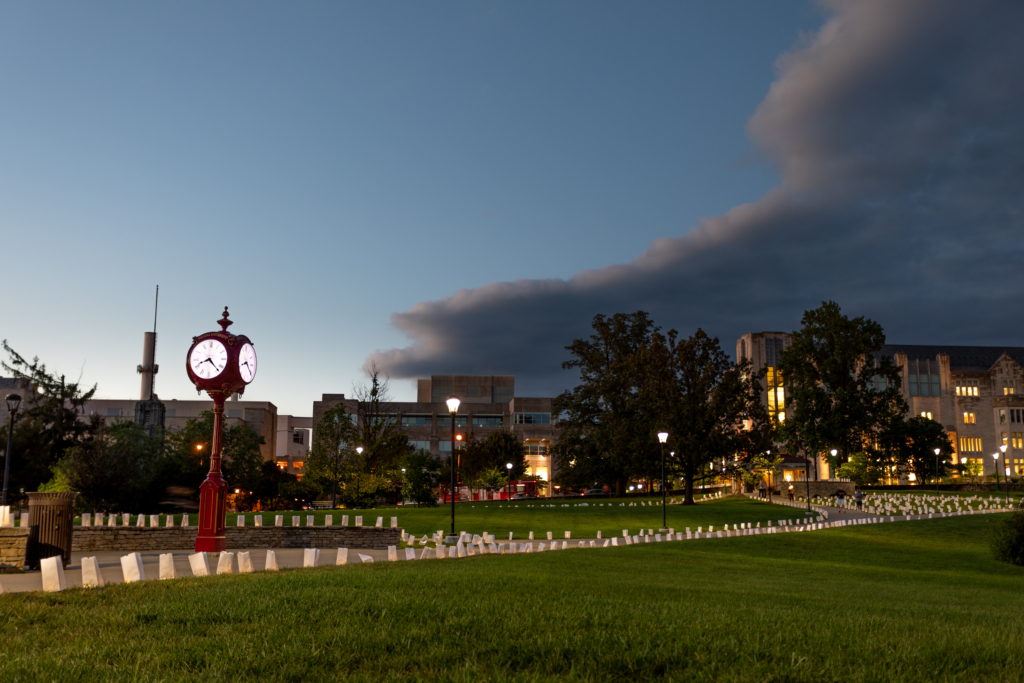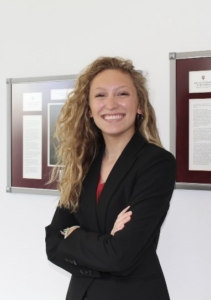
Undergraduate students manage stress during finals throughout the week at Balance Week events. Students participate in yoga class at the Balance Room on December 11, 2019. Courtesy photo
SMASH ROOMS & FAILING SUCCESSFULLY
Student Support at Kelley is a two-person team: Higgins and assistant director Keyandra Whiteside. It has developed group training and presentations for student groups, departments, faculty and more. Topics include recognizing signs of distress in peers, recruitment bias, navigating Imposter Syndrome, and wellness from a diverse perspective. Student representatives from various Kelley clubs and majors serve on the mental health/balance task force alongside faculty and staff. Inviting and listening to student input has led to many of Kelley’s culture of care initiative, Higgins says.
Kelley undergraduates can also pop into the Balance Room, located in the heart of Hodge Hall Undergraduate Center, to unplug, reflect, or just take a nap. The school rebranded its dead week – the study period before finals – to Balance Week, a series of fun, stress-relieving events to offer a mental break. In the past, those have included handing out breakfast burritos, bringing in therapy dogs, and hosting a mobile smash room where students can write what’s bothering them on a plate just before crushing it to smithereens. During pandemic restrictions, they hosted online cooking demonstrations with Kelley dean Idie Kesner.

Kelley students interact with an ICAN service dog during Balance Week on December 7, 2021. Courtesy photo
“It’s a wonderful way for students to take a break from their work and just do something that we know is going to be balanced or healthy. But it also is sort of a sneaky way to expose them to the kinds of things they could be doing for their mental wellness throughout the entire year if they wanted to develop that practice,” Higgins says.
The school frequently invites alumni and other speakers to talk about their own balance and mental health journeys, and hosts an annual Failing Successfully Summit in the middle of Indiana’s harsh winter. Kelley students are naturally high achievers, and at college, surrounded by equally successful, high achieving classmates, they often face their first major failure. It could be failing a test, or not getting a coveted internship. The summit helps students put these failures into perspective while helping them practice for future rejections.
But what do mental health, smash rooms, and failing successfully have to do with business school?
“I think we’ve had pretty good luck of really meeting a student where they are and being empathetic to whatever struggle that they’re having. That doesn’t mean an absence of accountability or fairness or equity in the classroom, but the trends in business in general are that more and more people are open about these kinds of issues at work and employers are responding with resources and support, rather than telling people to just suck it up,” Higgins says.
“I also think that we’re in the business of training people to make a difference. So, hopefully, students will see how this can be done well, and really build up these skills before they’re fully in the real world, to help change those workplaces that are still a little bit less responsive than they should be.”
IMPACT OUTSIDE THE CLASSROOM
Kelley has also been a leader in extending its culture of care outside the classroom. It was the first major business school to create an institute dedicated to helping students achieve social impact and solving real social issues in real communities. The Kelley Institute for Social Impact (KISI) was founded in 2010 and is the umbrella office for social impact student-directed programs and organizations, such as Civic Leadership Development and the annual campus Whirlpool-Habitat for Humanity build.
This summer the school announced the creation of Kinsey-Kelley Center for Gender Equity Business, a new research and education center with a mission of creating safer, more equitable workplaces. Its annual Kelley Impact Competition celebrates student business ideas that “compound good from social impact.” And its Alternative Break Program works with nonprofits to design purpose-driven spring break opportunities for Kelley students.

“Lights for Life,” organized by Balance At Kelley, memorializes the roughly 1,100 college students that die by suicide each year. That many luminaria are lined up along the main path of the Arboretum on World Suicide Awareness Day in September. Courtesy photo
When she was a freshman, Piera saw a close friend struggling. The friend was referred to IU’s Counseling and Psychological services, and Piera sat with her as she called them. She also sat alongside some of her counseling calls. While her friend likely needed more consistent, clinical services outside of campus, she believes those services helped the young student in the moment.

Lauren Piera
Each year on World Suicide Prevention Day, Balance at Kelley puts up 1,100 luminaries to memorialize the number of college students that die by suicide each year. Piera hears so many messages of support, and even from students who have said that the event helped them through a tough time, that she knows the event has a positive impact on her fellow students.
“These services are incredibly important because students need to know that they are supported. A lot of Kelley students also have a fear of reaching out because they do not live in Indiana, so they are far away from their normal health services,” says Piera, a marketing and professional sales major, and who serves as the Balance at Kelley representative on the Mental Health Task Force as well as on its Marketing Committee.
“I haven’t heard of any other business schools having this program. I think it is truly one of the first of its kind,” she says.
“In such a competitive environment, the Kelley school is focusing on uplifting and supporting its students. They are focusing on not just being the best academically but having a healthy and well-rounded student body. I don’t think other business schools can say the same.”
DON’T MISS THESE OTHER STORIES IN OUR UNDER THE RADAR SERIES:











Questions about this article? Email us or leave a comment below.